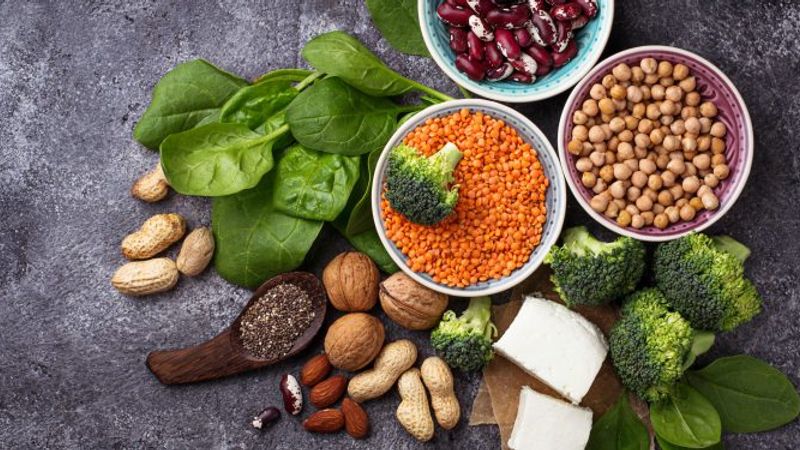Table of Contents
Wellhealthorganic.com:vegetarian protein sources
In the realm of nutrition, protein is often hailed as the building block for a healthy body. It’s crucial for various bodily functions, including muscle repair and growth, hormone regulation, and immune system support. While animal products have traditionally been the go-to source for protein, the rise of vegetarianism and veganism has spotlighted a plethora of plant-based alternatives. Whether you’re a dedicated vegetarian or simply looking to incorporate more plant-based protein into your diet, there’s a wide array of options available to meet your nutritional needs.
Legumes: Nature’s Protein Powerhouses
Legumes, including beans, lentils, and chickpeas, are among the most versatile and nutritious sources of plant-based protein. They are not only rich in protein but also packed with fiber, vitamins, and minerals. For instance, a cup of cooked black beans provides about 15 grams of protein, while the same serving of lentils offers approximately 18 grams. These versatile legumes can be incorporated into a variety of dishes, from soups and stews to salads and veggie burgers, making them an excellent choice for vegetarians.
Quinoa: The Complete Protein
Quinoa is often hailed as a superfood for its impressive nutritional profile. Unlike most plant-based foods, quinoa is a complete protein, meaning it contains all nine essential amino acids that the body cannot produce on its own. A single cup of cooked quinoa delivers around 8 grams of protein, along with a healthy dose of fiber, iron, and magnesium. This ancient grain can be enjoyed as a base for salads, served as a side dish, or even used to make protein-rich breakfast bowls.
Tofu and Tempeh: Soy-Powered Protein
Derived from soybeans, tofu and tempeh are staple ingredients in vegetarian and vegan diets. Tofu, made from coagulated soy milk, is a versatile ingredient that can be baked, grilled, stir-fried, or blended into smoothies. It offers approximately 10 grams of protein per 3.5-ounce serving. On the other hand, tempeh, made from fermented soybeans, packs even more protein, boasting around 20 grams per serving. Both tofu and tempeh are not only rich in protein but also provide essential nutrients like calcium, iron, and magnesium.
Nuts and Seeds: Portable Protein Powerhouses
Nuts and seeds are not only convenient snacks but also excellent sources of plant-based protein. Almonds, pistachios, and peanuts are particularly protein-rich, providing around 6-8 grams of protein per ounce. Additionally, seeds like chia seeds, hemp seeds, and pumpkin seeds are packed with protein, fiber, and healthy fats. Sprinkle them on salads, blend them into smoothies, or enjoy them as a topping for yogurt or oatmeal to boost your protein intake throughout the day.
Dairy and Dairy Alternatives: Protein-Rich Options
For lacto-vegetarians, dairy products offer another source of protein. Greek yogurt, cottage cheese, and milk are all rich in protein, calcium, and other essential nutrients. Greek yogurt, in particular, stands out for its high protein content, providing around 20 grams per cup. For those following a vegan diet, dairy alternatives like almond milk, soy milk, and coconut yogurt are fortified with protein and can be used in place of traditional dairy products in recipes and beverages.
Conclusion
Incorporating vegetarian protein sources into your diet doesn’t have to be challenging. With a diverse array of plant-based options available, you can easily meet your protein needs while enjoying delicious and nutritious meals. Whether you’re indulging in a hearty bean stew, savoring a quinoa salad, or snacking on nuts and seeds, there’s no shortage of protein-packed delights to explore on your vegetarian journey. By embracing these wholesome foods, you can nourish your body, support your health, and contribute to a more sustainable food system.
